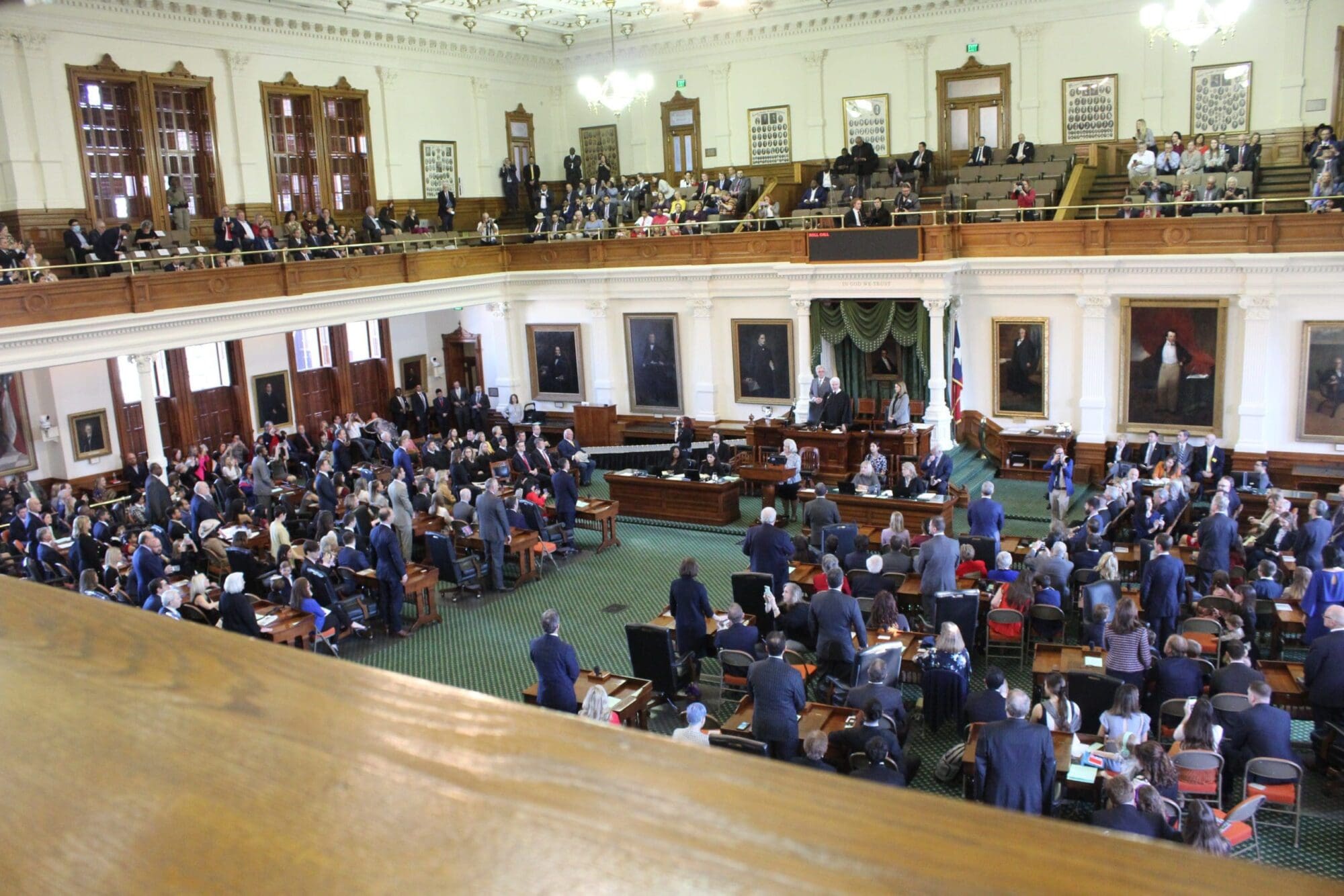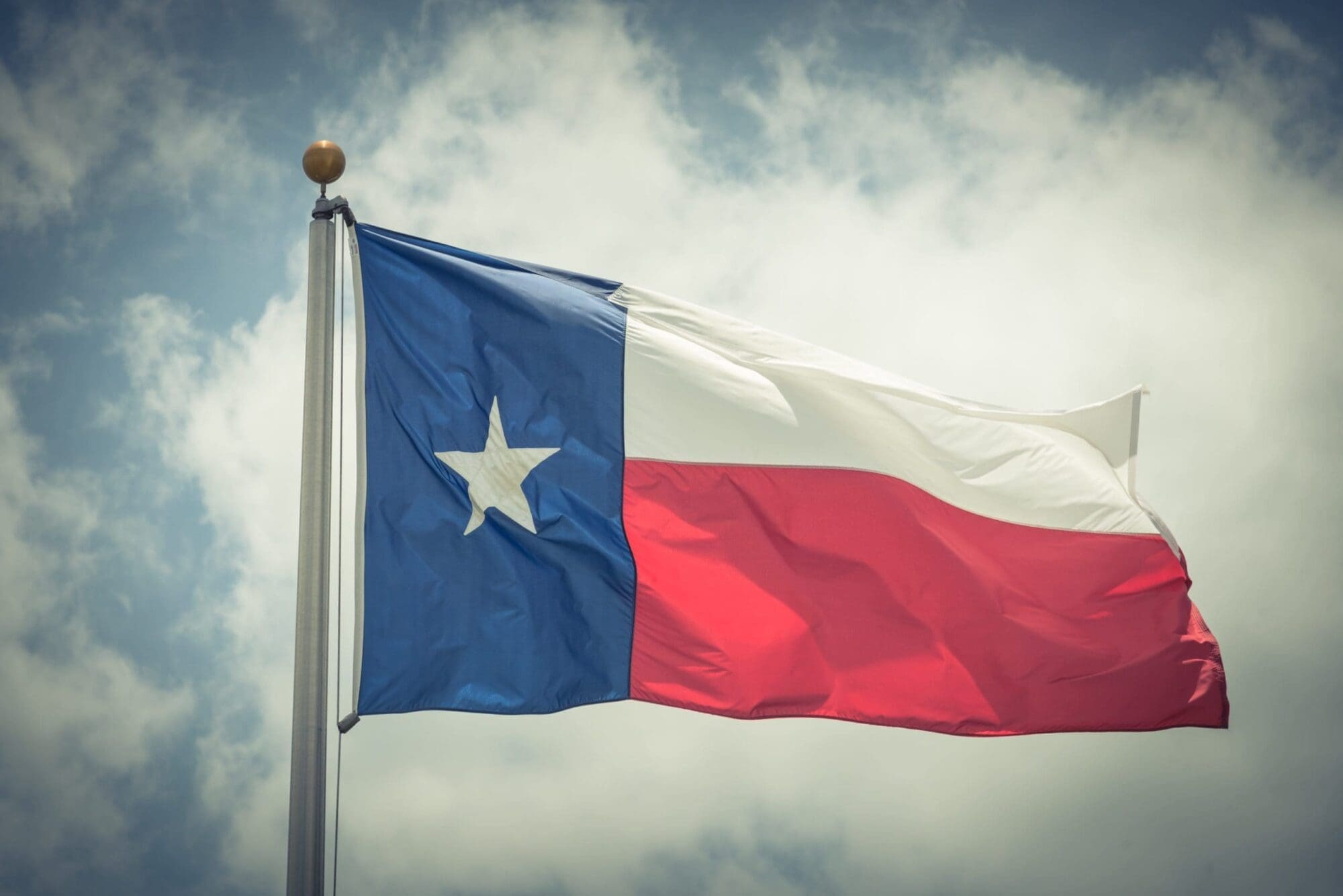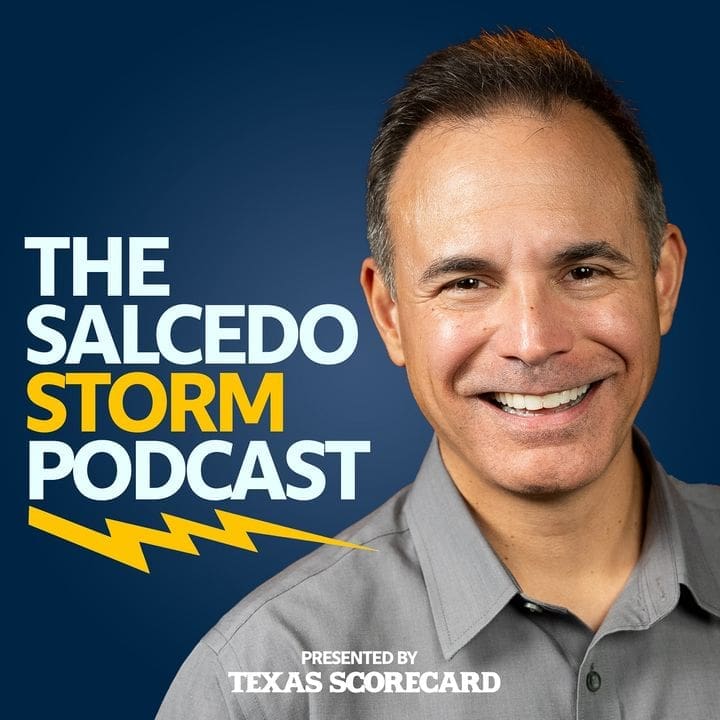Dallas is considering building soccer fields seemingly in the middle of nowhere, according to a proposal submitted by a state senator’s son.
I-345, located in southeast Dallas in the Deep Ellum district, is a stretch of highway constructed in 1973 that has been blamed for the decades-long economic downturn of the Deep Ellum area. There are currently two competing proposals to address the issue; one is the product of years of study and the other a slap-dash proposition which some have characterized as a bold power-play by a sitting state senator and his family.
Coalition for a New Dallas, a political and social think-tank led by former D Magazine publisher Wick Allison, has proposed following in other cities’ footsteps and tearing down the miles of expressway entirely, replacing it with boulevards, and transforming the area for mixed-use development. The overarching purpose, as articulated by the coalition’s co-founder Patrick Kennedy (an urban transportation expert), is to re-knit the neighborhoods of Deep Ellum and Fair Park; the plan is to remove the expressway, which tore the area apart in the 1970s as a part of the rush to connect interstate highways through Dallas rather than around these long-established neighborhoods.
This proposal was adopted by the Dallas City Council, which had the removal of I-345 as its lynchpin. But since 2014, this proposal has been vocally opposed by Democrat candidate for U.S. Senate (and current State Senator) Royce West (D-Dallas). When it became apparent that the coalition’s plan had coalesced to the point of beginning the planning stages for implementation, a family member of Sen. West began working in the background on a plan, which many have alleged aims to block the coalition’s proposal.
Roddrick West, the senator’s son who holds a degree in architecture, began a backroom discussion with the Texas Department of Transportation (which owns and controls the area directly below I-345 as shown in the image below). These discussions resulted in a yet-to-be-disclosed proposed agreement between West’s group and TxDoT to utilize the space as a series of soccer fields for club play. The only remaining impediment to TxDoT approving the agreement was for the City of Dallas to sign off on the plan. Media scrutiny and questions from then-sitting city council members caused the item to be sent back for more study by a city council committee.
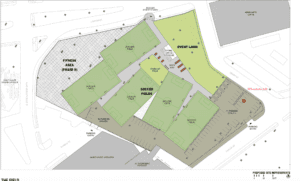
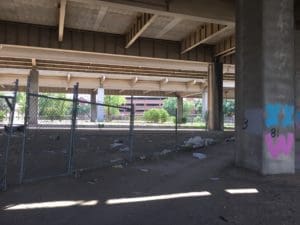 Images taken by Texas Scorecard show that the area is quite dilapidated and home to a number of homeless individuals. The area is typically littered with garbage, and the overhead traffic creates a noisy, exhaust-filled atmosphere that doesn’t promote ideal conditions for children to congregate. Visiting the site could reasonably lead one to question whether the design is acting in the best interests of the children.
Images taken by Texas Scorecard show that the area is quite dilapidated and home to a number of homeless individuals. The area is typically littered with garbage, and the overhead traffic creates a noisy, exhaust-filled atmosphere that doesn’t promote ideal conditions for children to congregate. Visiting the site could reasonably lead one to question whether the design is acting in the best interests of the children.
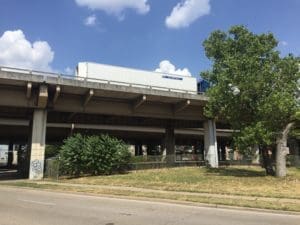 West has come under increasing scrutiny since his announced run for U.S. Senate, with a recent article detailing the wealth he has amassed from government contracts. It is currently unclear from West’s federal disclosures what financial interest he and other members of his family may have in the proposed soccer “complex.”
West has come under increasing scrutiny since his announced run for U.S. Senate, with a recent article detailing the wealth he has amassed from government contracts. It is currently unclear from West’s federal disclosures what financial interest he and other members of his family may have in the proposed soccer “complex.”
Through open records requests, Texas Scorecard has obtained documents relating to this development and continues to interview stakeholders involved. To date, Roddrick West initially agreed to an interview but has since refused to return numerous calls and emails for comment regarding the I-345 issue.


